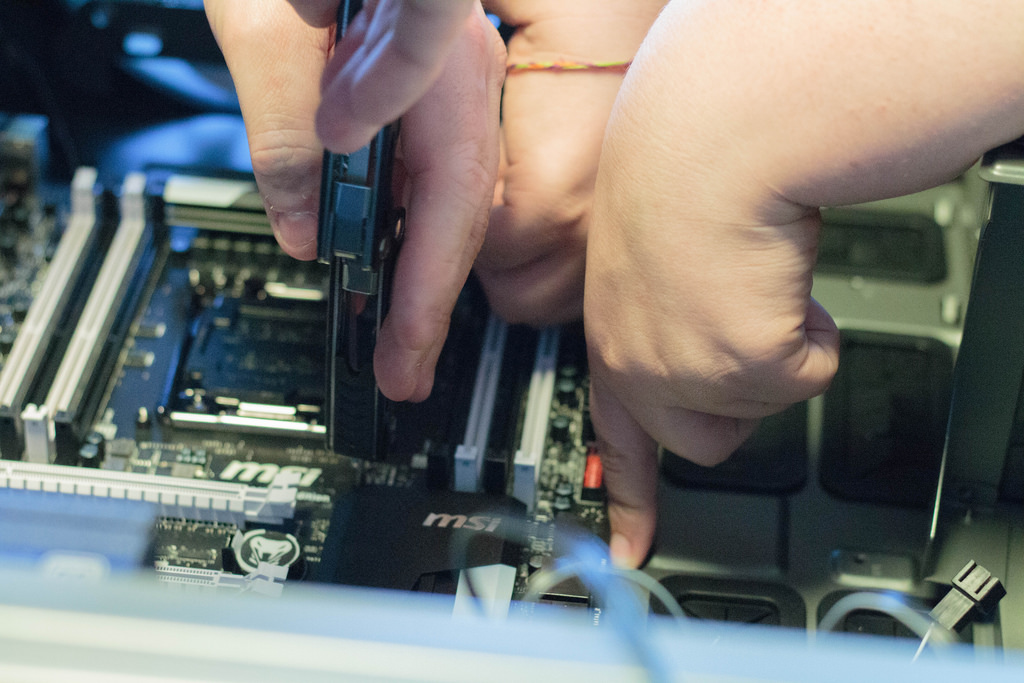On a podcast interview, someone asked me how I make sure my work doesn’t harm my family life. There’s something lurking in this question that I’d like to unearth and cast out.
Guilt is one of the worst shackles. It takes away personal freedom and fulfillment and replaces it with bitterness and self-loathing, most of the time without detection. It lurks always, and it’s easy to let it drive us to needless suffering and slavery.
I think questions about work-life balance are predicated upon a subtle, persistent guilt that permeates our culture and our ideas about work.
If it’s merely that work and family are two important areas of life that we’re trying to balance, you would expect to hear questions not only like the above, but also the reverse:
“How do you make sure family life is not harming your work?”
We never hear the question asked in that direction. No one seems concerned about the person who ruins their career because they can’t say no to family, only the other extreme.
This reveals a strange feeling most people have about work. They think it’s bad. Family, or “life,” is an unquestioned good, while business or work are seen as dangerous, though perhaps necessary evils.
The unquestioned value ranking of work as the lowest thing on which to focus and family the highest means we feel guilty when we’re working. Oh, and we also feel guilty when we’re watching Dora with the kids and secretly wish we were working.
This strikes me as a stupid situation all around. This idea that you’re bad for liking what you like is dangerous and useless for anything but increasing the surface area from which you can be manipulated and made miserable.
I don’t like dividing up my life into work/family/fun etc. I prefer to think of my overarching purpose or goal in life as the thing I’m always up to. For me, it’s to live as free as possible, help others do the same, and enjoy the process. Then I consider all my activities in light of how they help do this.
I also ask myself, in the words of Dan Sullivan, for whom I want to be a hero. For me, it’s concentric circles, starting with myself (if I’m not proud of who I am, none of the rest matters), my wife, kids, Praxis teammates, customers, potential customers, and finally fellow travelers/readers/listeners. In my pursuit of my mission, these are the people I care about. So if something wins me tons of points with someone outside these groups, I ignore it unless it’s very low cost. Or if something is valuable to fellow travelers but costly to family or team, I’m less likely do focus on it. If something wins point with any of these, but makes me less proud of myself, I don’t do it.
Everything – from playing LEGO with my kids to running a workshop for Praxis – is part of my life mission, and the balance isn’t about work/life, but about who I’m being a hero to and whether it’s who I care about.
Not dividing things up into work/family is helpful in many ways. Being a hero to my kids, for example, might not mean going to the park, it might mean growing the business or giving a talk or staying up late working on something meaningful to me. They see who I am and what I do, and seeing me live a life I believe in is just as important as going for a bike ride with them. In fact, if I’m bitter about the bike ride and really wish I was finishing that spreadsheet, it’s probably worse to model a life of unhappy obligation than to focus on what I think helps me live my mission best in every moment.
The point isn’t to define your life into separate segments and decide which is more important, the point is to stop framing life as a tug of war between things you value. Instead, try to think of your core goals/values/missions/purposes, let everything from earning a paycheck to backyard BBQ’s tier up to those, and define who you most want to be a hero to so that you can ensure your activities aren’t chasing vanities but hitting your intended market.
I try to live my life in such a way that, if asked, I honestly can’t always tell whether I’m working or playing or doing family time or whatever else. My goal is to always be doing something valuable to me, that moves me closer to who I want to be, and that creates value for the audiences I care about. Sometimes it’s Play-Doh, sometimes it’s an email marketing campaign. They don’t seem so different to me. They’re both meaningful, fun, hard work.




